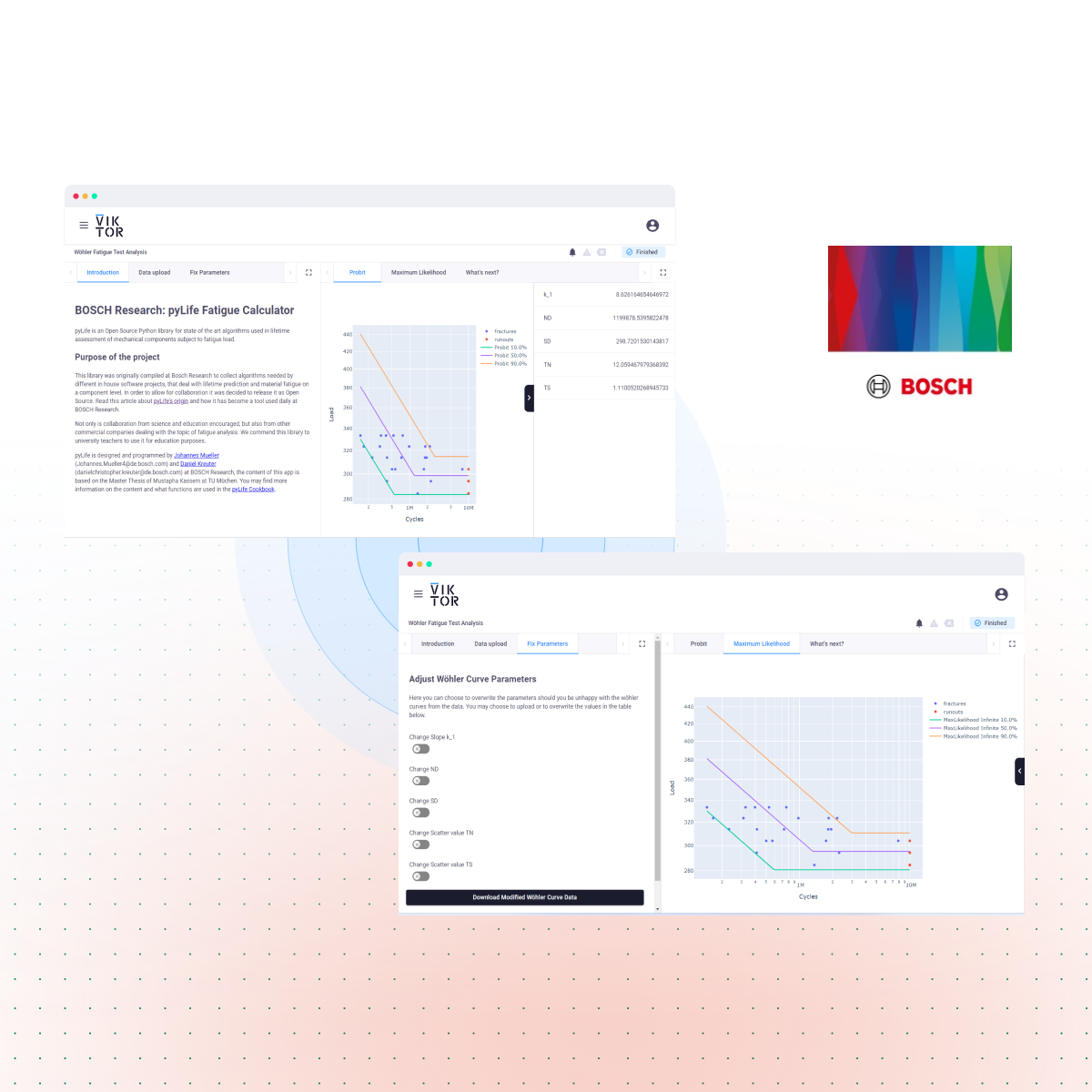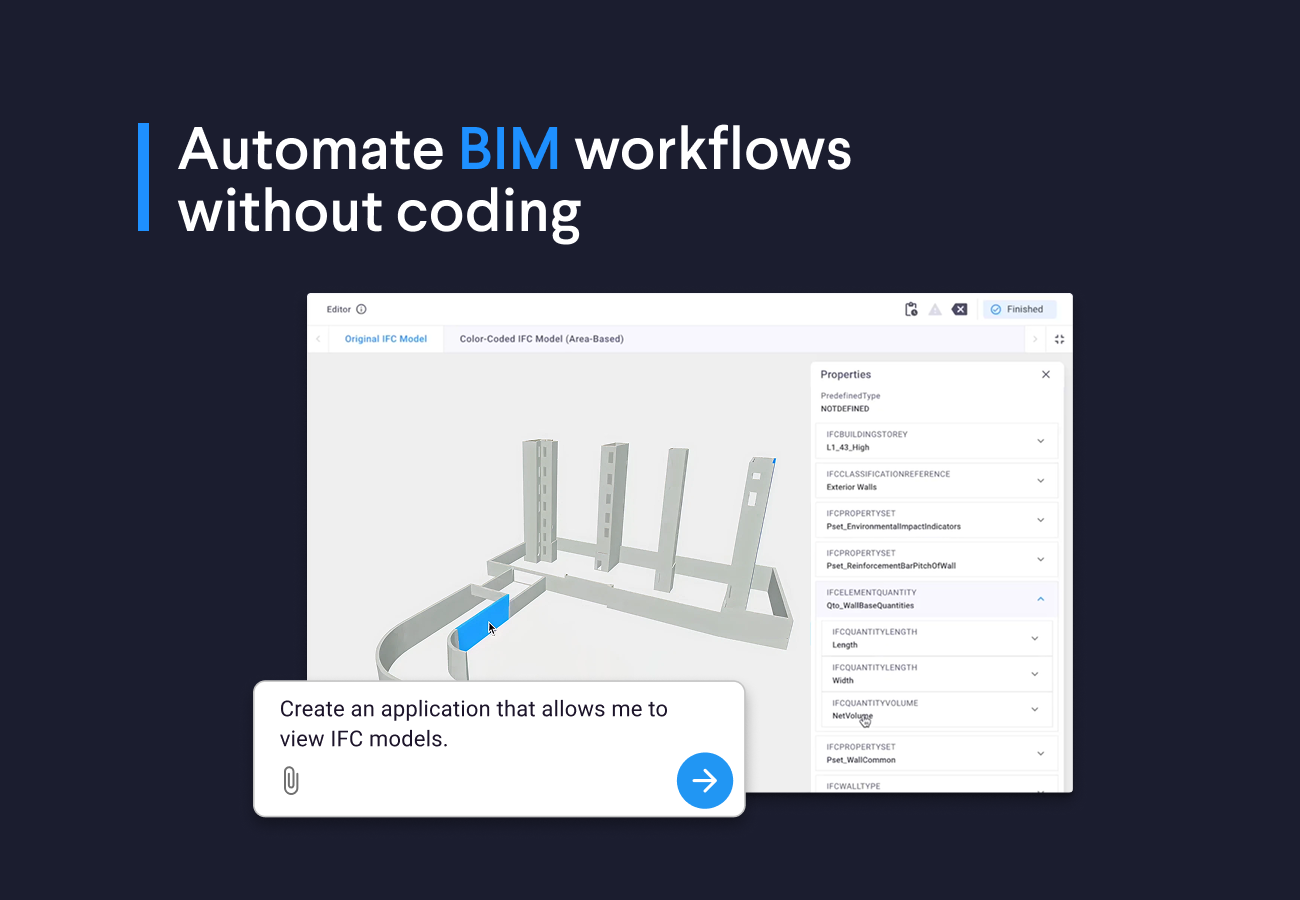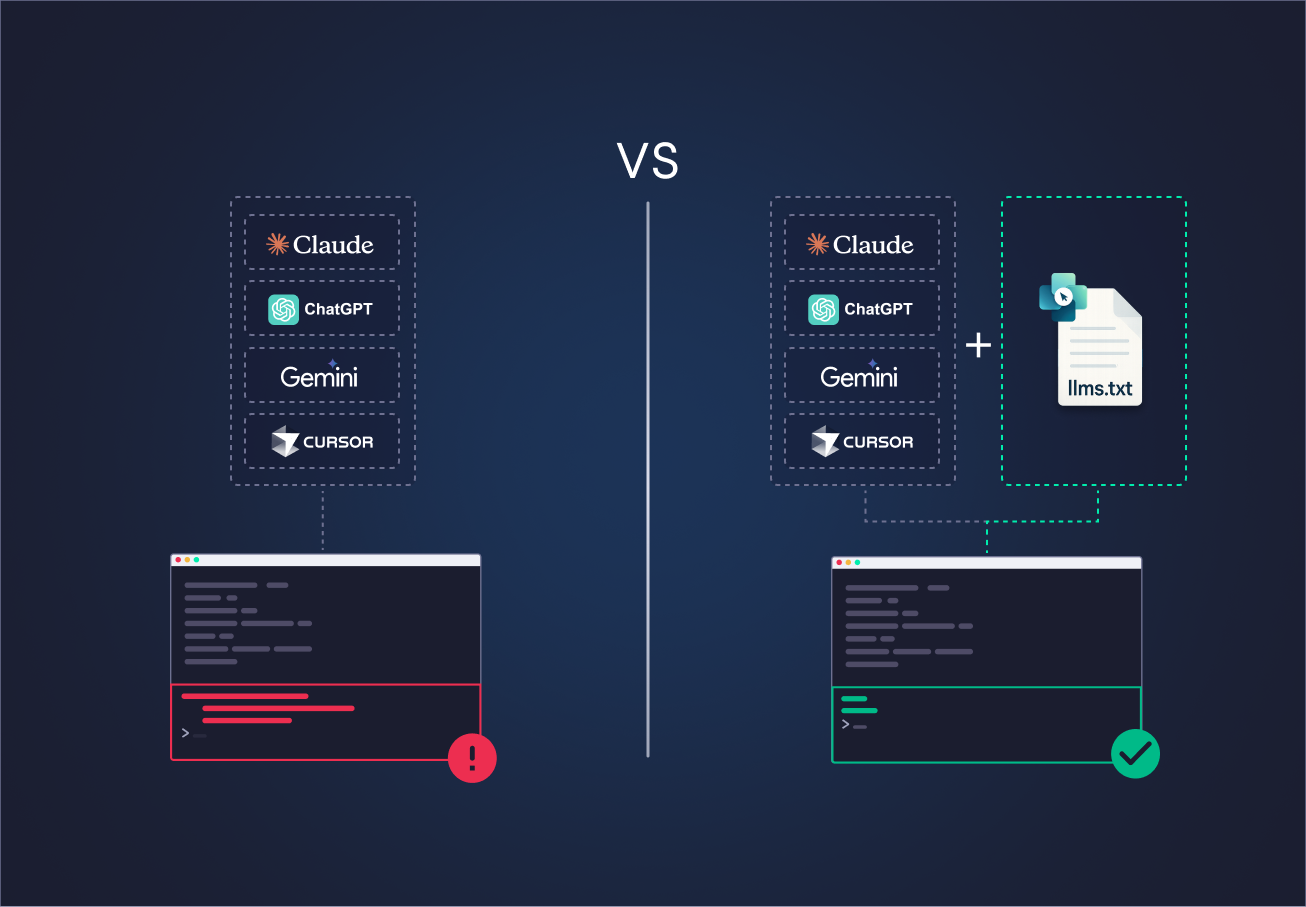May 22, 2023
Bosch's pyLife and VIKTOR: Fostering Open-Source Community for Web Apps in Mechanical Engineering

by VIKTOR


Download the White Paper and get INSPIRED
Learn about trends in digital transformation and how they affect the engineering and construction industry.
Open-source Python package for mechanical engineering
The idea to create pyLife came from Johannes Mueller, a Material Research engineer at Bosch. When he first joined Bosch in 2008, he experienced the limitations of using commercial engineering software. Back then, there were already several separate initiatives to develop more advanced calculation methods at Bosch, even though they didn't have much experience with software development yet. When they started to learn the skills needed for the job, they experienced the effort that went into these developments. That is why they wanted more people to benefit from their work instead of having to reinvent the wheel over and over again. They recollected the most used algorithms and turned them into one library everyone could access: the pyLife Python package.
By now, Bosch's internal open-source community has led pyLife to grow into a package with modules for lifetime prediction and material fatigue on a component level. From rain flow counting, predicting failure probabilities and damages, to assessing the lifetime span of electric motors for powertrains.
"The aim of pyLife is to make specialistic knowledge available to others through open-source software." – Johannes Mueller, Material Research engineer at Bosch
The pyLife community
The pyLife modules are not only valuable for colleagues inside Bosch but also for the broader community of mechanical engineers, academics, and students. Because of the internal open-source culture at Bosch, many different modules have been developed for pyLife so far, consequently making their user community grow over time.
However, this community has not reached its full potential yet. Most potential users and contributors are not programmers, so they cannot implement pyLife directly. According to Johannes: "The reality is that not all colleagues are comfortable with programming; this is a challenge when distributing tools like pyLife."
pyLife and VIKTOR
As a solution to this challenge, pyLife partnered with VIKTOR: a platform that empowers engineers and domain experts to create and manage web apps using just basic Python skills. Together, they are creating user-friendly apps that any mechanical engineer can use that provide examples of what is possible with pyLife.
Mueller: "A user-friendly web application is an excellent way to promote pyLife. Hopefully, we can raise the interest of people who want to further dig into the package and contribute to it."
Moreover, VIKTOR can be a helpful tool for engineers without experience designing user interfaces, as it lets you quickly turn your Python scripts into apps. "The most interesting part about VIKTOR is that it also handles all the complicated processes, like the hosting. You can just install it and start making and sharing apps, and others can use the apps without installing anything", says Mueller.
The future of engineering is open-source
pyLife's is made to communicate and integrate with other open-source software packages easily. Johannes: "I generally would welcome other companies to do more open-source themselves or contribute to other open-source projects. Especially companies in the engineering area because they don't usually do it that much while the benefits are huge."
pyLife is not the only open-source development Bosch has worked on over the past 10 years. The company is very aware of the significance of open source to not only have a competitive edge but also help attract the brightest minds to the team. Mueller: "You need to allow people to work with open-source. Many new engineers know the importance of open-source, so you cannot ignore it. Instead, you should include it in your strategy."
Bosch Research would also like to see pyLife used in teaching, as these are algorithms students could actually use and play around with during their education. If students are really interested, they could even go to the source code and dig further into it. Mueller: "This is also where the VIKTOR platform could come in handy as an easy-to-use user interface around pyLife that they can use to implement it into their workflow."
Conclusion
Overall, pyLife is an exciting development in the world of open-source software and mechanical engineering, and it will be interesting to see how the community develops and grows around this resource.



